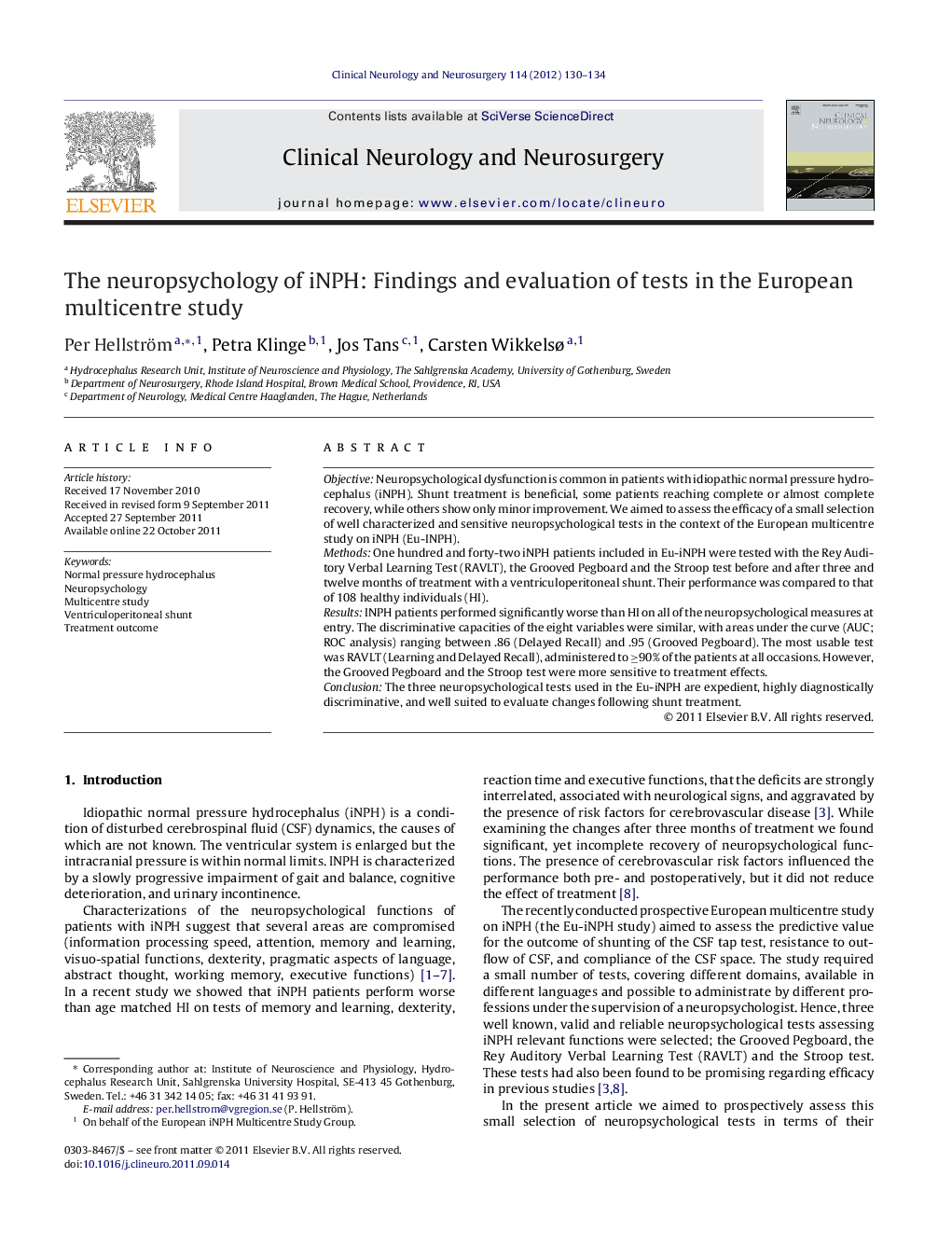| Article ID | Journal | Published Year | Pages | File Type |
|---|---|---|---|---|
| 3040928 | Clinical Neurology and Neurosurgery | 2012 | 5 Pages |
ObjectiveNeuropsychological dysfunction is common in patients with idiopathic normal pressure hydrocephalus (iNPH). Shunt treatment is beneficial, some patients reaching complete or almost complete recovery, while others show only minor improvement. We aimed to assess the efficacy of a small selection of well characterized and sensitive neuropsychological tests in the context of the European multicentre study on iNPH (Eu-INPH).MethodsOne hundred and forty-two iNPH patients included in Eu-iNPH were tested with the Rey Auditory Verbal Learning Test (RAVLT), the Grooved Pegboard and the Stroop test before and after three and twelve months of treatment with a ventriculoperitoneal shunt. Their performance was compared to that of 108 healthy individuals (HI).ResultsINPH patients performed significantly worse than HI on all of the neuropsychological measures at entry. The discriminative capacities of the eight variables were similar, with areas under the curve (AUC; ROC analysis) ranging between .86 (Delayed Recall) and .95 (Grooved Pegboard). The most usable test was RAVLT (Learning and Delayed Recall), administered to ≥90% of the patients at all occasions. However, the Grooved Pegboard and the Stroop test were more sensitive to treatment effects.ConclusionThe three neuropsychological tests used in the Eu-iNPH are expedient, highly diagnostically discriminative, and well suited to evaluate changes following shunt treatment.
